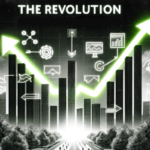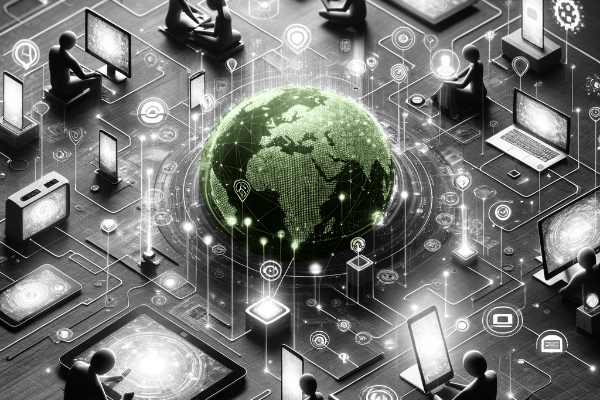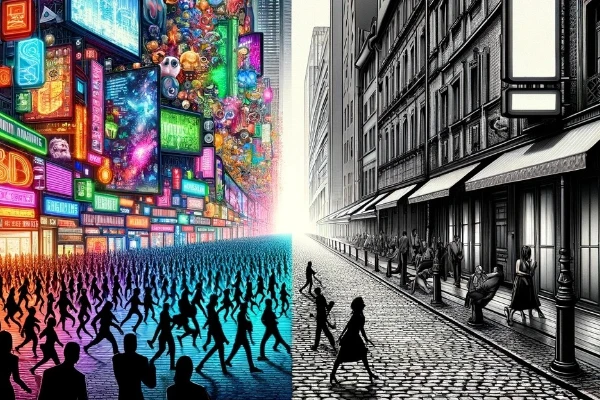
Resilience Redefined: Mastering Business Continuity in an Era of Unprecedented Challenges
January 12, 2024
Navigating the New Era of B2B Software Sales
January 23, 2024Unveiling the Future: Emerging Trends in Digital Communication
Embracing the Digital Evolution
As the world rapidly digitizes, understanding the transformative power of digital communication is more crucial than ever. From small startups to tech giants, everyone is navigating these changes. With an engaging blend of statistics, real-world examples, and expert opinions, this article offers an in-depth exploration of the latest trends and their profound impacts on business strategies, consumer expectations, and societal norms. Designed for a diverse audience, including IT professionals, CEOs, CMOs, and CTOs, this guide serves as a roadmap to mastering digital communication.
Innovation at the Forefront: Technology Reshaping Communication
Cutting-edge technologies like Artificial Intelligence (AI), 5G, and the Internet of Things (IoT) are revolutionizing the way we connect and interact. AI is enhancing personalized experiences, making communication more targeted and efficient. Meanwhile, 5G’s rapid data transfer speeds are enabling more seamless, real-time interactions. The IoT is connecting devices and platforms, creating a more integrated and interactive digital ecosystem.
Consumer Behavior: The Shift Towards Digital Empowerment
The digital age has ushered in a new era of consumer empowerment. Today’s consumers expect personalized, on-demand interactions. They are more informed and have higher expectations for transparency and engagement. This shift is driving businesses to adapt and evolve their communication strategies to meet new expectations.
Global Impacts: Economic and Environmental Considerations
The advancement of digital communication isn’t just reshaping industries; it’s also having significant economic and environmental implications. On the economic front, digital platforms are creating new markets and opportunities, but also disrupting traditional industries. Environmentally, while digital communication reduces the need for physical goods and travel, it increases energy consumption through data centers and network infrastructure.
Business Strategies: Adapting to the Digital Tide
In response to these evolving trends, businesses are reshaping their strategies to leverage digital communication effectively. Marketing is becoming more data-driven and personalized, customer service is increasingly automated and immediate, and internal communication is becoming more flexible and collaborative.
Predictions and Evolutions
Concluding with a forward-looking perspective, this section offers predictions on how current trends might evolve and continue to influence industry developments. From the potential of quantum computing to the growing importance of cybersecurity, it provides a glimpse into the future of digital communication.






